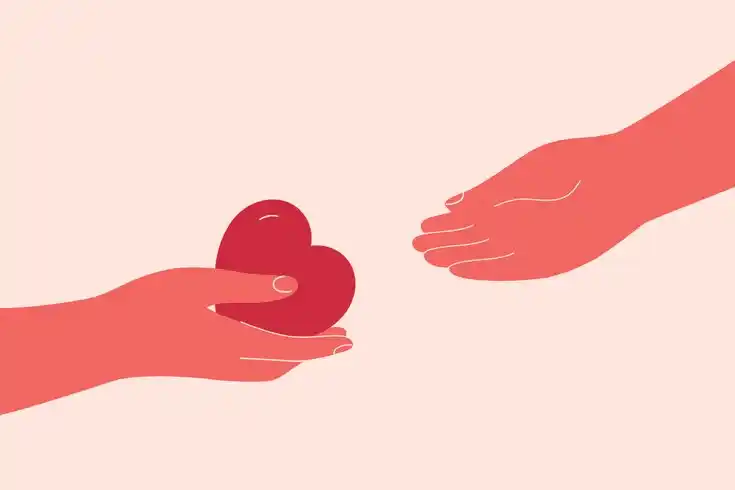Zeeshan and Karina Hayat on The Impact of Giving Where You Live

People like to feel useful. Drop a few quid into a donation pot, post a link on social media, share a heart-tugging video—click, done. You’ve helped. You care.
But here’s a less comfortable truth: it’s easier to care from a distance.
We’ve been conditioned to look far for people to help. To send support across oceans, to think that “real” suffering lives somewhere else. There’s no guilt in that—it’s a reflex that’s been trained into us.
Because while we’re looking out there, we’ve stopped noticing what’s happening right here. Helping at home isn’t glamorous. It doesn’t look good on a travel blog or Instagram feed. But it’s real.
Home Isn’t Just a Place. It’s a Responsibility.
It’s easy to detach from your own postcode. You know it too well. The corners are familiar. The people feel ordinary. There’s no novelty in proximity, and without novelty, attention fades. But familiarity doesn’t mean people are fine. Struggle doesn’t always announce itself.
People hide their needs better here. Shame makes it quiet.
So, here’s the challenge: start small. Not because it’s “humble,” but because it’s effective. Check on someone. Listen—not just politely, but long enough to hear what they don’t say. Volunteer your time where the admin is disorganised, the carpets are old and no one’s writing press releases.
That’s where the real work is.
Old People Aren’t Old News
The UK has one of the loneliest elderly populations in Europe. That’s not a statistic—it’s a warning. People who’ve worked, raised kids, paid taxes, and lived full, complicated lives are now slowly being erased by silence.
And no, loneliness isn’t “sad”—it’s lethal. It raises the risk of dementia, heart disease, and early death. But more than that, it shrinks a person’s sense of worth until they stop trying.
You can’t fix everything. But you can sit down, ask questions, listen to stories, laugh at jokes you don’t quite get, and let someone feel like they matter again.
It’s not charity. It’s recognition.
Poverty Doesn’t Always Look Like a Tent on the Pavement
Another critical misperception is that poverty is always visible. In reality, many people in the UK live in hidden deprivation—working multiple jobs, sleeping in cars, skipping meals so their children can eat. These are not isolated incidents. They are structural failures, and the burden falls heaviest on those least able to carry it.
Charity at home, then, must be more than charitable—it must be just. It must interrogate why people are falling through the cracks and seek to fill those gaps not only with aid but with advocacy.
Feeding a hungry neighbour is a moral good. Asking why they are hungry in a wealthy nation—and demanding change—is a deeper act of charity. One that costs more than money: it requires engagement, courage, and persistence.
Local Doesn’t Mean Limited
Too often, people associate local charity with a small impact. But the opposite is true. Local action is scalable, personal, and builds social capital. When we create webs of care in our neighbourhoods, we foster resilience. Community fridges, mutual aid groups, elderly companionship programmes, and micro-financing cooperatives for struggling families—these initiatives can transform entire postcodes.
100 Meals a Week, among others, has recognised this. Our work centres on local wellbeing because we recognise that resilient communities are the foundation for broader, long-term change. A community that is attentive to its own challenges is far more equipped to engage meaningfully with global issues—with clarity, compassion, and consistency.
We don’t become more effective in helping others by overlooking what’s close. We grow into better global citizens by paying attention to what’s right in front of us.
Bridging Generations Through Service
One of the overlooked benefits of helping those close to home is the potential for intergenerational healing. When young people engage in acts of service with the elderly or marginalized in their own communities, they don’t just give—they receive. They inherit wisdom, patience, and a sense of place in the continuum of care.
Schools and youth organisations could do more to embed this ethos. Not as a checkbox for university applications, but as a lived, ongoing engagement. Imagine if every teenager in the UK spent one hour a week with an elderly resident in their borough. How might that shape their worldview? Their sense of responsibility? Their empathy?
Charity at home isn’t just about mending what’s broken—it’s about preventing further breakdowns by nurturing a culture where interdependence is normalised, not stigmatised.
Towards a Theology of Proximity
In many faith traditions, including Islam, the neighbour holds a sacred status. The Prophet Muhammad (peace be upon him) said, “He is not a believer whose stomach is filled while the neighbour to his side goes hungry.” There’s no footnote that the neighbour must be Muslim, or that they must be visibly suffering. Just the fact of their existence near you is enough to warrant your concern.
This theology of proximity can radically shift how we think about giving. Instead of looking outward for worthiness, we look around. We ask, who is near me? Who is unseen? What responsibility do I have?
This isn’t an argument against international aid—it’s an argument for integrated compassion. A heart that beats for Gaza and also breaks for Grenfell. A wallet that funds water in Somalia and also buys sleeping bags for those in Sheffield.
Conclusion: The Revolution Starts on Your Street
Charity isn’t something you graduate into when you’ve “made it.” You don’t need a surplus to start giving. You need willingness.
Moreover, giving isn’t always about money. Sometimes the most radical thing you can offer is attention. Or time. Or patience.
It’s not glamorous. It’s not always convenient. But it is real, and it is necessary.
In a world of curated generosity, charity that begins at home is raw, rooted, and revolutionary. It calls us to slow down, to look around, and to build a life—and a community—that no longer needs to be saved because it has already learned how to care for its own.
